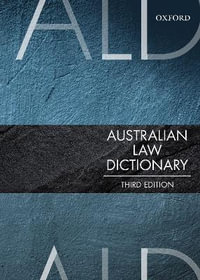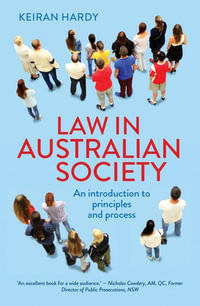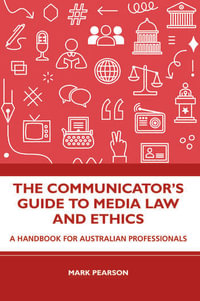Healthcare professionals face an increasing threat of litigation from parties whom they have never met in their daily medical practice and who look nothing like the traditional patient. The so-called 'non-patient' may take many forms"for example, a person who is injured or killed by a mentally-ill, physically-disabled or diseased patient; a wrongfully-accused parent in a child neglect/abuse case; or a local authority which is put to the expense of caring for a negligently-treated patient. This book explores the legal principles and conundrums which arise when determining a healthcare professional's liability in negligence towards a wide variety of non-patients. The topic is assuming increasing legal importance and relevance, given the potential for many non-patient claims to give rise to class actions litigation, and in light of the legislative and human rights interventions, and the frequent appellate judicial consideration, which non-patient claims have attracted in recent times. The aim of the book is to have utility for both legal and medical professionals; for academics and students of comparative medical negligence and tort law; and for law reformers who may be interested in adopting certain features of statutory models elsewhere which pertain to some non-patient claims, such as those based upon 'Good Samaritan' conduct. Important parallels or counterpoints from other common law jurisdictions, in which courts and commentators have grappled with the legal complexities of non-patient claims, are also discussed and critically analyzed.
Industry Reviews
'A book that explores these unusual aspects of health care liability is very welcome. Its style and organization is matched by its erudition. In dealing with an area of growing importance, the book provides a very useful addition to the medical law library.' Richard Lewis, Cardiff University, UK 'Professor Mulheron's path-breaking book addresses what is set to become an important dimension to professional liability. Approaching the subject with characteristic innovation and thoroughness, she has written what will become a standard reference work for both practicing and academic lawyers. Professor Mulheron brings her extensive knowledge of common law developments to bear so the book will be of use across jurisdictions. Her insights will make the book of value not only to those interested in medical and professional liability law but to all who wish to know where the law of civil wrongs is heading.' The Honourable Mr Justice Cranston FBA, Judge of the High Court, Queens Bench Division '... an unusual book... [which] builds upon the author's well-known comparative research interest in common law legal systems... The book deals systematically with the possible range of non-patients who may have suffered by reason of the acts and omissions of healthcare professionals. The author enumerates with great rigour the range of potential duty situations and the types of injury that may be sustained. Her comparative interest in decisions of other common law courts is vindicated in the wealth of decisions (from supreme courts to small claims courts) which inform the argument. ... An attractive feature of the book is the detailed dissection and tabulation of the competing policy arguments deployed in favour and against the existence of a duty: even if public policy is still an unruly horse, the reasons informing the unruliness are laid bare. ... recommended to HCPs, lawyers and those interested in comparative studies of the common law in the medical field.' Modern Law Review 'Professor Rachael Mulheron's Medical Negligence: Non-Patient and Third Party Claims is an illuminating compendium of judicial opinion and academic comment on healthcare professionals' potential liability to nonpatients and third parties. As a general rule healthcare professionals do not owe a duty of care to such parties in English law. Mulheron's work examines this challenging position, highlighting notable exceptions to the norm both in precedential English authorities and cases from other jurisdictions. The author exposes considerable inconsistency and forecasts some significant development in favour of claimants in this complex and emotive field. The work is essential and stimulating reading for healthcare professionals and medical lawyers.' Medical Law International
























